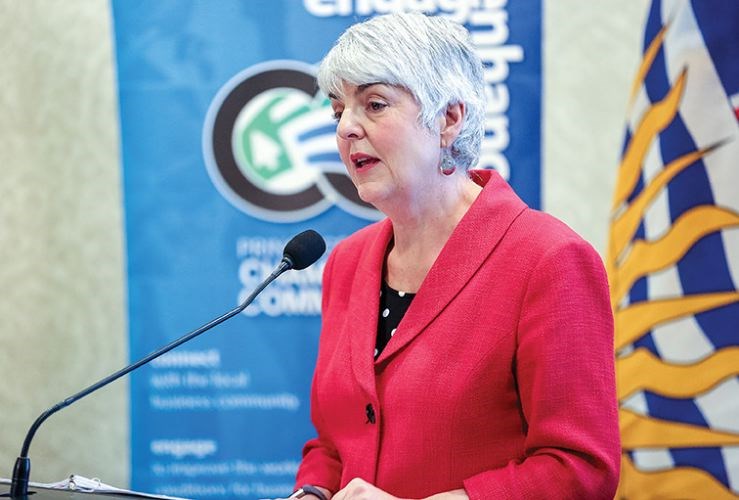Finance Minister Carole James introduced the first NDP budget this past week. It is an interesting document providing the stated intentions of the government.
I say the "stated intentions" because if I have learned anything as an adult, a budget is more of a "wish list" than a "set of instructions." It is actionable but it is how it is put into action which will determine if it is a good budget or not.
The really interesting document are the "actuals." These tell us where the government actually spent our money and not where the government thought it might.
Of course, the budget has concrete fixtures. Money for doctor salaries is not going to change much year over year nor is the amount spent at the Ministry of Finance. Some costs are fixed and the government has very little discretion.
But other lines in the budget are subject to wild swings. Just consider the amount of money spent last year on forest fires. Going into 2017-18 budget cycle, no one could have predicted the runaway catastrophe of a fire season the summer brought.
Budget 2018 has a few very definite intentions. Minister James contends we have a strong economy with record employment growth. Not too surprising and some would ascribe this to a holdover effect from the previous government. After all, economic swings take time.
However, the important point the minister makes is a strong economy isn't enough if it is not serving the people of B.C. I know there are some who would argue a strong economy, by its very nature, must be serving the people of the province.
But if wages are not keeping up with the cost of living, if housing is becoming unaffordable, if a two-income family is absolutely necessary in order to just tread water, if childcare costs are consuming most or all of a family's disposable income, then it is not serving us.
This government believes Budget 2018 addresses these issues and takes the first steps in tackling housing affordability, childcare costs, and affordable services.
Time will tell if they got it right. Indeed, it will take a number of years before the full impact of the changes proposed this year will have worked their way through the economy.
Remember it took the B.C. Liberals three years to recover from the massive cut to personal income tax they made in their first year. And they would not have been able to do so if they hadn't shifted their revenue sources to user fees and higher premiums.
A provincial budget document is a plan. It is a nudge to the real economy stating the priorities of the government and how it sees its impact on the province.
Specifically, Budget 2018 promises "Homes for B.C." How does the government intend to accomplish this? "By creating a new speculation tax on those distorting British Columbia's housing market." It is a tax targeting people who do not pay income tax in the province.
Will it do anything to the housing market? It is doubtful. It might turn away a few investors but they are not the reason house prices in Greater Vancouver, the Capital Region District, and the Kelowna region are through the roof.
Simply put, the law of supply and demand is at play. The demand outstrips the supply and sellers are able to hold out for higher prices. No one is going to sell their house at less than the maximum they can get for it.
So a speculation tax might cause a mild cooling of an overheated market, in the same way the foreign buyers tax did, but it is doubtful it will correct the market.
Budget 2018 recognizes this and goes on to commit to building affordable housing, with a total of $6 billion over 10 years. However, the number of units created will barely keep up with population growth. It is a necessary investment but it is questionable whether it will have any long-term impact.
Housing in Vancouver is now such that a typical house is 37 times the average annual income of a working family. This is not sustainable. Eventually, people will start to leave the city. It is for this exodus government needs to plan.
Other measures in Budget 2018 include getting child care costs down to the "$10-per-day" range by 2020 for average working families and eliminating MSP premiums. Of course, in the latter case, the budget doesn't actually propose elimination of the premiums. Instead, the costs are shifted to a payroll tax paid by employers with a salary mass greater than $1.5 million.
On the whole, it is pretty much a status quo budget if you eliminate these few measures. Most of the revenue and expenses for the ministries are in keeping with the previous government.
The wish list items, though, will definitely determine whether this was a good budget or not.



